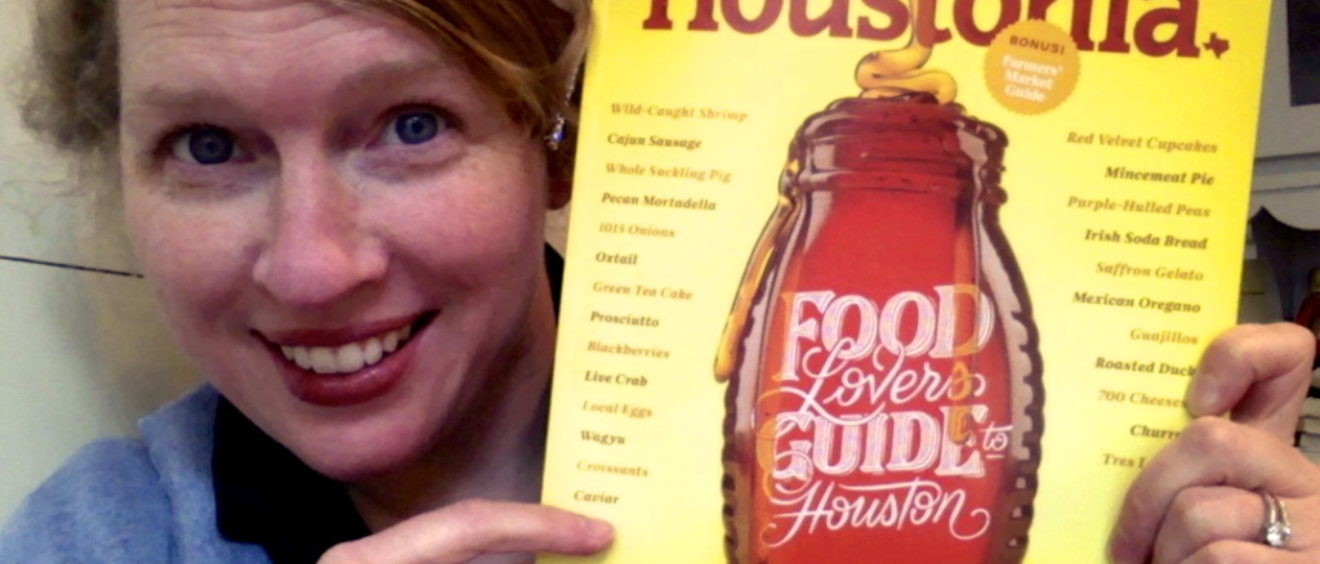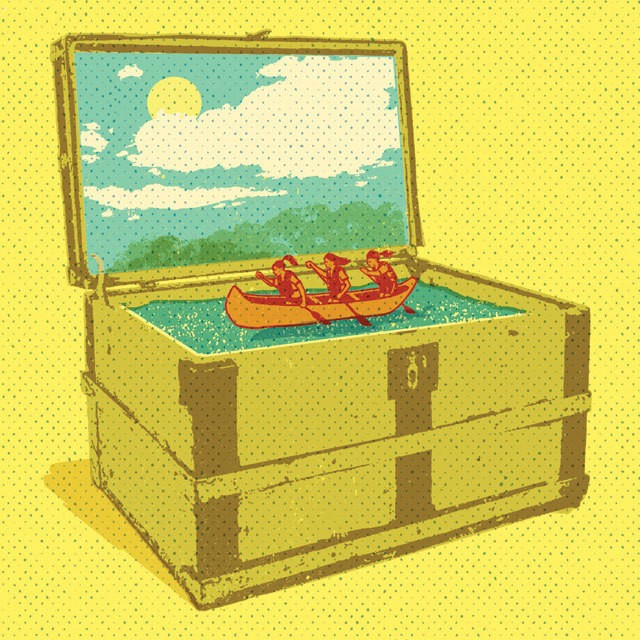
essay for Houstonia Magazine
This essay about growing up and letting go–and Camp Waldemar–appeared in Houstonia Magazine in February 2014.
HOLDING ON
IN A WAY, MY MOTHER NEVER TRULY LEFT her childhood home, even though she moved out long ago. It’s a classic River Oaks Georgian with two enormous magnolias with mushroom-colored trunks in the front yard. Her dad built it in 1940 with materials from his own company back when Houston literally ended at their block. It’s the place where she grew up (we have snapshots of her as a baby when the trees were just saplings), and it’s where her parents lived until they died. Even after they were gone, though, she couldn’t bring herself to sell the house. Instead, she rented it out for years before deciding to fix it up and move back in, almost 40 years after she’d moved out.
It was her way of holding on. The renters got the use of the house, but she padlocked the attic: its long cedar closet still filled with family keepsakes that have been there for decades—1950s prom dresses of my mom’s, old hats of my grandmother’s, beloved stuffed animals, classic bed sheets, scrapbooks.
One day last fall, I was helping my mom clear space in the attic for a new furnace when we noticed something nearly hidden behind holiday decorations, something under the eaves and long forgotten, something that looked like an old camp trunk.
We carried it downstairs, opened it, and found a raft of lost treasures: my mother’s baby clothes, her dolls, a pair of bronzed baby shoes, a diary from when she was 10, an autograph book with Roy Rogers’s signature, an old canteen, school papers, report cards, and a small stuffed animal that her camp friends had signed.
We came across a few of my grandmother’s things as well, including her own baby clothes from 1912 and a box with yellowed tape and a note in blue ballpoint that read “Wedding Dress” in her handwriting. My mom had no idea that the dress, from 1937, still existed.
I wanted to see the dress. “Can we open the box?” I asked.
My mom shook her head. “We should wait for your sisters.”
The last thing we found was an old shoebox. Inside was a stack of letters on pink stationery, each addressed in careful, awkward cursive that slanted down the paper.
My mother put her hand to her mouth. “Oh,” she said.
“What are they?”
“My letters home from camp.”
My mom was nine in 1950 when she first went off to Camp Waldemar for Girls in the Hill Country. Her dear aunt Phyllis had loved it so much, she convinced my reluctant grandmother to let her young daughter go. And from that first summer, all the way until she was a 16-year-old Aztec chief in an enormous green headdress, she loved every day she spent there.
Going through the stack of letters started off with a bang. On the back of the very first envelope we opened was a note from a counselor named Monty: The doctor says Deborah’s knee is just bruised, though it is uncomfortable for her right now. Don’t worry about her. Her cold is practically gone and her eyes are fine now. She missed the skating party last week, but went to the radio show.
“What happened?” I asked.
“Didn’t I ever tell you?” She’d been accidentally knocked off the dock by some girls carrying a canoe. She tried to jump across the slip but missed, crashing knee-first into the dock before tumbling into the Guadalupe River. The letter went into serious detail, including an aerial map with arrows showing the direction she’d tried to leap and a four-inch oval tracing of her swollen knee.
After that, the letters settled into standard adorable camp fare.
Dear Mother and Daddy, I am having lots of fun. Please send Scotch tape.
Dear Mother, Today we had some sickning stuffed eggs in jello. I was starved until I saw it. We all got sick. Having lots of fun.
Dear Mother, Not much has happened since the last time I wrote to you. How are the dogs. Do they still have ringworm.
In my head, my mother has always been the very definition of capable, which is why I found myself noticing every little mistake I saw—the misspellings, the missing question marks. I knew, of course, that my mom had once been a child—but it was one thing to know it, and another thing entirely to see her handwriting and hear her little voice on the page. It bridged the distance of all those years, somehow. It was like I could almost reach her.
Many years after those Waldemar days, when my mom was a mom herself, she sent her daughters to Waldemar too. (At one point, she had three girls in three different tribes, which meant that my dad wore a pair of pants with different colored legs—orange and purple—and a green polo shirt, to divide his loyalties equally.) Now my daughter is the same age my mother was that first summer, and she has just spent her first long term at Waldemar. Like my grandmother, I worried that she was too young. And like my mom, my daughter loved it. We hardly got any letters at all.
At camp’s end, our whole family, mom included, drove to the Hill Country in August to pick up my daughter. She looked taller, the tiniest bit sunburned, and she hugged her little brother and swung him around in circles.
Waldemar still looks much the same as it did when it was built in the 1920s, with the same fairy tale architecture that you never see in real life. The stone cabins designed like Swiss chalets and French chateaus are still there. The dining hall walls are still made of gray river rocks—some with embedded fossils. Everywhere you look there’s something surprising and wonderful, just like always.
My latest trip made me wonder if a place like that might be a more powerful experience for Houstonians than kids from other cities. What I mean is, Houston loves to bulldoze things. We love to raze and reinvent. But there’s another side to folks here—at least the ones in my family—that you don’t hear about as much, a side that wants to hold on to the best parts of the past, a side that insists that just because something’s gone doesn’t mean it’s lost.
Maybe it was the 100-degree heat, even under my orange parasol, but out there last summer I felt myself trying to conjure an image from long before I was born: my grandmother at the age I am now, in her cat-eye sunglasses, picking up my mother at the end of her camp term. For just a moment, I had this crazy notion that if I tried hard enough, I might catch a glimpse of her. It was a strange and tantalizing and bittersweet feeling of closeness.
The older you get, the more you realize that life is bigger than you—that you can’t even slow time down, much less turn it around. But that doesn’t mean you don’t keep trying. That’s what my family does, at least. We fill camp trunks with treasures, we tell stories, we go back to places we visited with people we loved, and we just keep holding on, even as we’re letting go.

